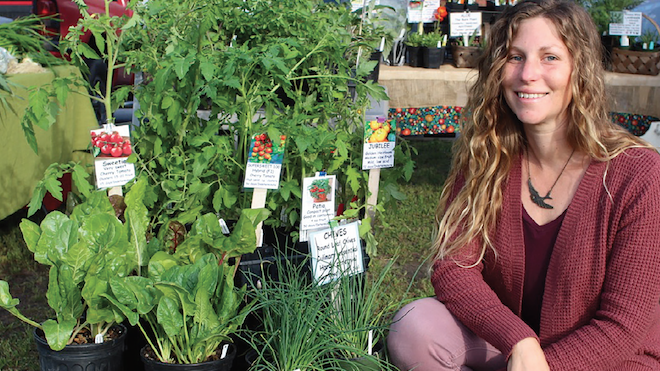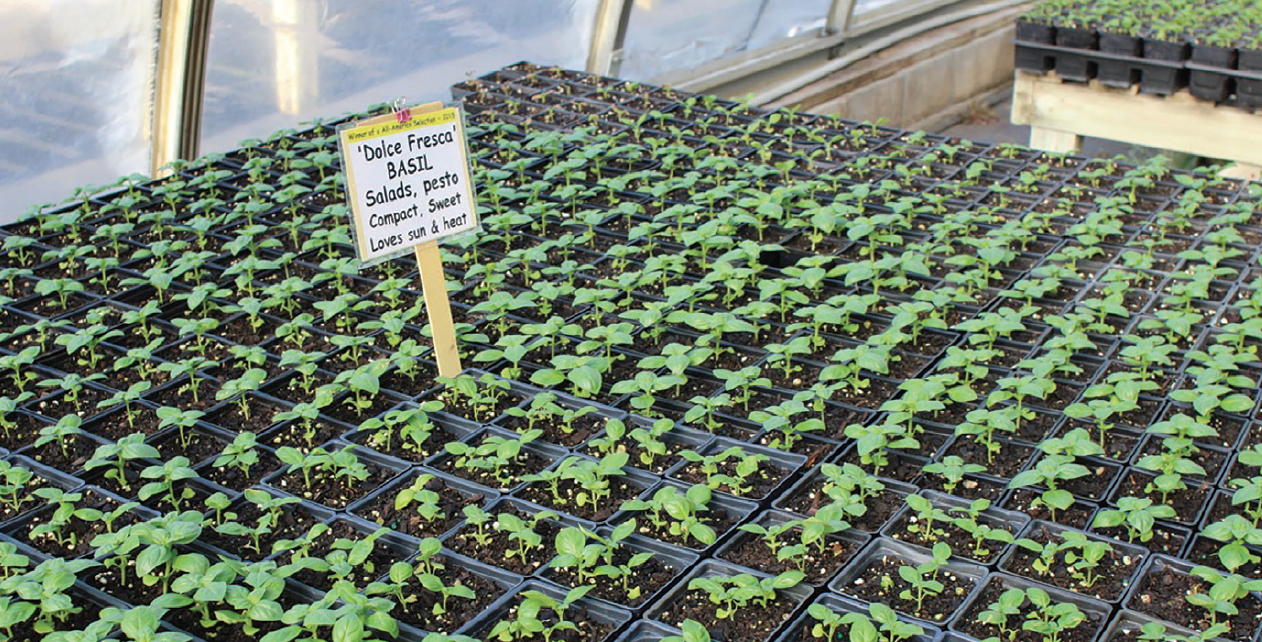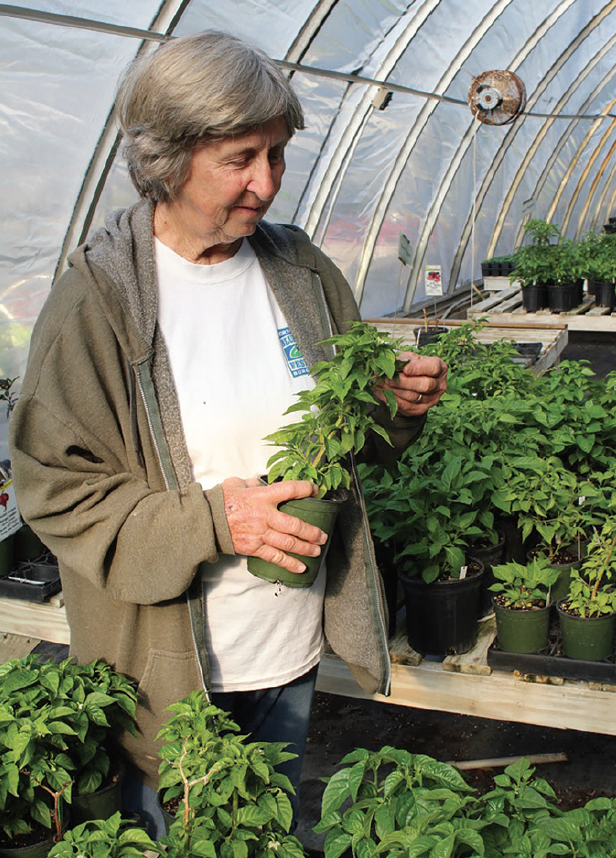
Jan 24, 2020Education spreads word regarding plant transplants
Stop by the Shelton Herb Farm booth at a North Carolina farmers’ market in the spring and you’ll see transplants of cherry tomatoes, golden heirloom tomatoes, leafy greens, peppers and lots of herbs – and customers appreciate education on them all.
Basil is the most popular herb sold and people start asking for it in February. “People want basil in the spring,” said Margaret Shelton, owner of Shelton Herb Farm near Leland, North Carolina. “I say if you plant basil outside any time before mid-April, it may be dead in a week. Be patient. Basil likes it hot.”
People want cilantro to spice Latin foods. “Some people love it. They have to have it all the time,” Margaret said. But cilantro is a cool season crop. It can withstand really cold weather but bolts in North Carolina’s summer heat.
Culantro and pepicha are warm season substitutes for cilantro from Central America. “Everyone wants cilantro but who knows about culantro?” Margaret asked. “We started a newsletter because people needed it; they needed the knowledge. Gardeners grow better with knowledge.”
Shelton Herb Farm is part of Goodman Farms, which is a Century Farm. This North Carolina program recognizes farms that have been continuously owned by the same family for more than 100 years. There are about 52,000 farms in North Carolina and a little more than 1,800 are Century Farms.
Goodman Farms started as the family farm of Margaret’s great grandmother whose husband was a Civil War veteran.
“I grew up here,” Margaret said. She worked at the University of North Carolina Wilmington and her husband is retired from a nearby power plant. The family moved back to the farm when their children were small. A vegetable garden was planted and was the beginning of the Shelton Herb Farm.
“I wanted to grow what my family ate,” Margret said. “I wanted to know what was applied to my vegetables. I wanted to grow vegetables without manufactured chemicals.” Herbs started being grown as companion plants in the garden as well as for culinary additions in the kitchen. “I had to grow my own herbs because garden centers did not offer the varieties I was looking for when I needed them,” Margaret said.

Carolina. Customers start asking for transplants in February and have to be taught basil is a warm season crop that likes hot weather. Photos: Dean Peterson
Involvement with the North Carolina Herb Association helped. “I networked with them and have been a member as long as I’ve been in business,” Margaret said. She’s also been involved in a national herb association – The Herb Society of America.
People don’t often realize some of their favorite herbs – thyme, oregano, rosemary, sage – are hardy perennials that are easy to establish and grow. They also may not know small plots – or a patio or deck for container gardening – can work well for homegrown herbs and vegetables.
Cooler weather is when herbs like mustard and parsley, and vegetables like leaf lettuce and all of the collard greens, grow the best. “There are so many kinds of greens,” Margaret said. “You can get lots of return growth from leaf lettuce. An elderly person could have salad and greens twice a day from a small plot.”
North Carolina’s hot summers are good for basil and all kinds of chiles and peppers. Tomatoes are more of a challenge. They must be started early since it’s preferable to give customers large transplants.
“I try to grow what people are asking for,” Margaret said. “One wants a golden tomato so you’ve got to have a Sungold. One wants some large ones but they usually don’t make it through the heat well. Cherry tomatoes do better in our heat and keep producing through our summers. People may want a special tomato and ask for it. I try to listen to experienced tomato growers.”
“I believe tomatoes are one of the more difficult fruits to grow,” Margaret said. “Everyone loves a good home-grown tomato, but it takes knowing how to do it. A lot of people realize the quality and the taste is different – that it’s worth growing produce for themselves.”
Having production in high tunnels, low tunnels in garden rows, as well as growing hardy, cool-season plantings in open rows, keeps Shelton Herb Farm open year-round.
Herbs for fresh cutting are grown year-round to supply local restaurants and other customers. Parsley, dill and cilantro grow well in the winter as well as an abundance of greens including mustards, kales, bok choy, cabbage, lettuce and collards.

Spring is when sales at the farm really go into high gear with people buying transplants – and they keep buying bigger ones as the season progresses.
Farmers’ markets are an important market in the summer and a way to raise people’s interest and expand the customer base.
Shelton Herb Farm is at the Riverfront Farmers’ Market in Wilmington, the Shallotte Farmers’ Market in Shallotte and the Southport Summer Market in Southport.
They’re also at the Wilmington Farmers’ Market at the Tidal Creek Co-op in Wilmington which is open year-round.
Shelton Herb Farm offers classes, workshops, tours and demonstrations year-round and works cooperatively with the North Carolina Extension Service and industry partners. “I think education helps everybody understand maybe it’s not so hard to do – when to plant it, when to harvest,” Margaret said.
“We have this long, wonderful, growing season in southeastern North Carolina with occasional cold snaps,” she said. “Seasons do change. How do you time what you plant through the season? It gets into, ‘What do you want to grow?”
— Dean Peterson, VGN correspondent
















